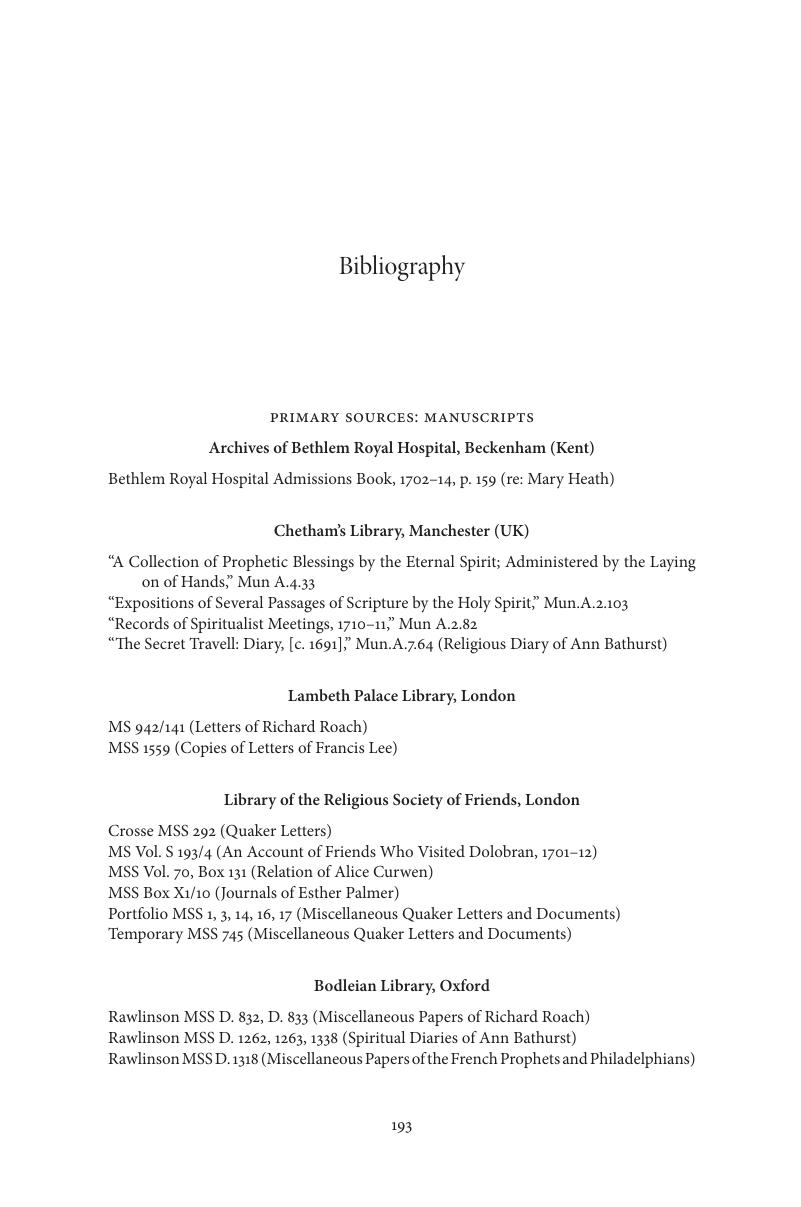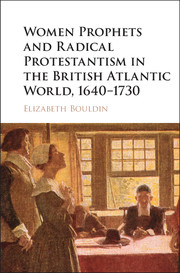Book contents
- Women Prophets and Radical Protestantism in the British Atlantic World, 1640–1730
- Women Prophets and Radical Protestantism in the British Atlantic World, 1640–1730
- Copyright page
- Contents
- Book part
- Introduction
- 1 Female Prophecy and Election during the Civil Wars and Interregnum
- 2 Female Prophecy, Election, and the Transatlantic Quaker Community
- 3 “Clothed with the Sun”: Ann Bathurst, Behmenism, and Gendered Prophecy
- 4 The Problem of Prophetic Authority, c. 1706–1715
- 5 “Peculiar People in All Parts and Denominations of Christendom”
- Conclusion
- Bibliography
- Index
- References
Bibliography
Published online by Cambridge University Press: 05 November 2015
- Women Prophets and Radical Protestantism in the British Atlantic World, 1640–1730
- Women Prophets and Radical Protestantism in the British Atlantic World, 1640–1730
- Copyright page
- Contents
- Book part
- Introduction
- 1 Female Prophecy and Election during the Civil Wars and Interregnum
- 2 Female Prophecy, Election, and the Transatlantic Quaker Community
- 3 “Clothed with the Sun”: Ann Bathurst, Behmenism, and Gendered Prophecy
- 4 The Problem of Prophetic Authority, c. 1706–1715
- 5 “Peculiar People in All Parts and Denominations of Christendom”
- Conclusion
- Bibliography
- Index
- References
Summary

- Type
- Chapter
- Information
- Publisher: Cambridge University PressPrint publication year: 2015



